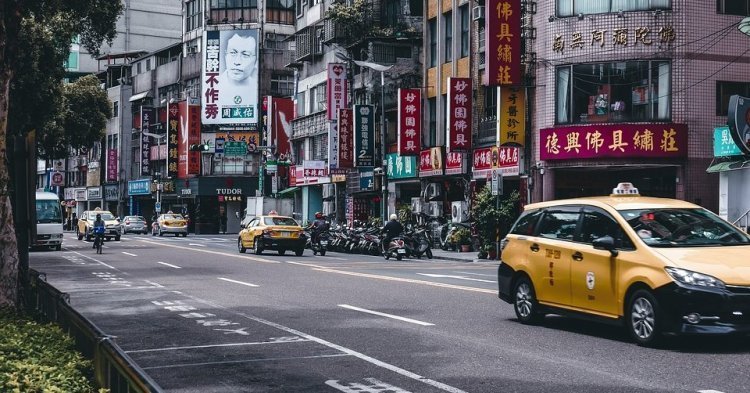Together with Japan up north and the Philippines to its south, Taiwan builds a chain of islands off the Chinese coast. Taiwan is seldom mentioned without reference to the People’s Republic of China, which the Taiwanese call ‘Mainland China’. For some, Taiwan is, after all, a Chinese province gone rogue, even officially calling itself Republic of China. For others, it is the only true China and others again view it as a de facto state whose independence is now due.
Contrary to the People’s Republic, Taiwan is democratic. In November 2018, its citizens elected numerous officials, ranging from village chiefs to mayors. The elections can be understood as some sort of midterms, first and foremost showcasing the political mood since the national elections two years ago. Back then, the Kuomintang, which is more sympathetic with mainland China, did not obtain a majority. Hence, the Democratic Progressive Party (DPP) which supports Taiwan’s independence on the long run has ruled since. The recent victory, however, indicates that the defeated party of 2016 is catching up with the governing party.
From a Chinese state party to democratisation
Demonstrations belong to the streetscape of the capital Taipei these days. However, on most days only a few people join, with some posters here and there. Speakers are attached to the tops of small trucks, enunciating the message of the protestors. They slowly cruise through the streets, tirelessly talking to bystanders. Here and there a break is made for the drivers to mingle with the protestors before continuing their parade.
In its past, Taiwan has lived through different colonial rulers: first the Dutch, then the Spanish and lastly the Japanese. When the latter capitulated at the end of the Second World War, Taiwan was ceded to China. Soon after, the Kuomintang – the major proponent of the Qing dynasty’s overthrow and the establishment of the Republic of China – were defeated on the Chinese mainland by Mao Zedong’s communists and fled to the Taiwanese island under Chiang Kai-Shek. During the following decades, those who had fled in 1949 established themselves, at times violently, as an elite vis-à-vis the general population. However, the unity party could generate great economic growth for the entire island.
The government in Taipei could hold on to the Chinese seat in the United Nations until 1979 when it was lost to the People’s Republic. At that point, reforms had become overdue and were thus implemented: The foundation of new political parties was allowed and today’s strongest opposition party, the DPP, was formed. The entire political system underwent democratisation. Since 1992, the Taiwanese parliament is assembled by elections and the Kuomintang lost its majority to the DPP for the first time in 2000.
The so-called Pan-Blue Coalition, of which the Kuomintang is part, initially endorsed Chinese reunification. Due to recent developments in the People’s Republic, however, it has set the collapse of the communist regime and democratisation as conditions for such a move. It continues to understand Taiwan as the sole, true Chinese government – whereas the Pan-Green Coalition (including DPP) favours complete Taiwanese independence. The latter’s support is, however, also motivated by other reasons than this conflict: Its assigned colour, too, is not necessarily associated with possible independence, but was chosen because of its affiliation with the anti-nuclear movement.
Stagnation: A step back towards China
Everything that happens domestically in Taiwan can be interpreted, directly or indirectly, as a reaction to mainland China. Yet, to understand the loss of the DPP this year solely in such a context comes short of grasping the full picture. Whilst the DPP’s electoral victory was owed to discontent with Kuomintang, the tides are turning. The Taiwanese economy is deteriorating, numerous graduates move to other countries to kick off their careers and the DPP recently failed to pass legalisation on same-sex marriage which especially young voters heavily advocated.
At the same time, those fiercely calling for independence are taking electoral revenge for the DPP’s inconsequential policy vis-à-vis the government in Beijing. Moreover, many of the economic sorrows stem from China’s efforts to isolate Taiwan internationally: countries wishing to establish diplomatic relationships with the People’s Republic have to follow the ‘One China’ policy and cannot officially recognise Taiwan a state. Even the US, acting as Taiwan’s protecting power, does not have an embassy in Taipei.
The Kuomintang’s increased popularity since the 2016 election can be seen as a step towards China, after the DPP had continuously distanced itself from Beijing in the first two years of its term. Should the government not achieve any successes until the next national elections, a Kuomintang victory can be expected – and Taiwan would thus be one step further away from a potential declaration of independence, and back to harmonic relations with the mainland. It is likely for the conflict to further stagnate if the Kuomintang manages to mobilise more voters than two years ago in 2020.
Change: It’s seething under the surface
Politics is not a topic the Taiwanese discuss with foreigners on their first dinner together. Opinions diverge too much. The people are too frustrated with politics: the latter is hardly seen as the expression of actual public concern. Too often it is forgotten that elections are about more than responding to the actions of the People’s Republic; though the formation and persistence of Taiwanese democracy are rather remarkable.
The solution the Taiwanese government has found so far is to uphold the status quo. Lacking international recognition hurts, but the majority of the Taiwanese is neither in favour of provoking the People’s Republic with a declaration of independence, nor of being annexed like Hong Kong and Macao as so-called Special Administrative Regions. Both options are too risky.
And yet it is seething below the surface. With a number of scholarships and a high budget for education, the government in Taipei has succeeded at attracting many international students and stimulate interaction with the rest of the world. Germany’s public international broadcaster Deutsche Welle has recently founded an East Asia office – in Taipei. It intends not necessarily to publish about Taiwan, but rather to report from Taipei about the People’s Republic of China. Pressured by lacking freedom of press on the mainland, executives had to look for alternatives, and found one in Taiwan. Taiwan is of practical use for the outside world and yet too weak to demand its support.
Outside the island state, barely anyone dares to provoke China. However, it is hardly fair to deny assistance to a state to defend its vivid democracy which it has achieved rapidly and by its own means, and upheld since. Whether change on the Chinese question can solely arise from inside Taiwan is debatable. Although the election result for the time being points towards stagnation, it should be noted that in international politics it is seldom easy to maintain the status quo.



Follow the comments: |
|
